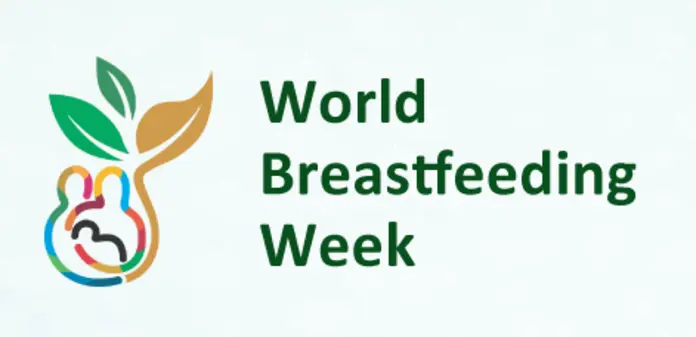By Iyemah David
As the World Breastfeeding Week (WBW) celebration kicks off, the Federal Ministry of Health, called on Nigerians to step up breastfeeding-friendly environments for mothers and babies in the country.
The Minister of State for Health, Joseph Ekumankama said this at the flag-off ceremony on Monday in Abuja.
Nigeria flag-off the week-long celebration of the 2022 World Breastfeeding Week.
For over two decades, Nigeria has joined the rest of the world to commemorate the World Breastfeeding Week, which is a weeklong event for awareness creation and to generate support to improve breastfeeding practices for good health and wellbeing outcomes for infants, young children and mothers.
The theme for this year’s celebration is “Step up for Breastfeeding: Educate and Support.” This theme focuses on strengthening the capacity of actors that are involved in the protection, promotion and support of breastfeeding across different levels of society.
These actors include governments, health systems, workplaces and communities. Over the years, evidence has shown that women need effective support –both to initiate and sustain breastfeeding.
However, many of the actors lack the necessary knowledge, attitudes and skills to support these women. Thus, there is a need to strengthen the capacity of all actors across the different levels to protect, promote and support breastfeeding.
Ekumankama said the importance of breastfeeding cannot be overemphasized. It is the foundation of child survival, health, growth and development, stressing that it provides every child with the best possible start in life.
“It delivers health, nutritional and emotional benefits to both mother and child. It also forms part of a sustainable food system.
“Breastfed babies have stronger immunity, reduced risk of infections and many childhood illnesses, and may also have longer-term health benefits including reduced risk of overweight and obesity in childhood and adolescence,” he said
According to the minister, studies have shown that obesity rates are 15-30 per cent lower in breastfed babies compared to formula-fed babies.
He said that again, about 80,000 child deaths were reported to be prevented annually when optimal breastfeeding was practised.
Ekumankama said that mothers also benefit enormously from breastfeeding.
“It helps to prevent post-partum bleeding and lowers a woman’s risk of breast and ovarian cancers.
“It can even reduce the risk of developing osteoporosis, diabetes, cardiovascular disease, high blood pressure, high cholesterol, and it lessens the severity of postpartum depression,” he explained.
He said that the global breastfeeding report highlights remarkable new evidence on the health and economic benefits of breastfeeding; reiterating the importance of breastfeeding as a fundamental driver in achieving the Sustainable Development Goals (SDGs).
The minister said that inadequate feeding practices and malnutrition contribute to over 50 per cent of under-five children’s mortality with 2/3 of these deaths occurring in the first year of life closely related to poor breastfeeding practices.
According to him, the FMOH through the National Agency for Food and Drugs Administration and Control (NAFDAC) and other Stakeholders will continue to enforce the Code for the marketing of Breast milk Substitutes (BMS) to address threats that unwholesome marketing poses to optimal breastfeeding practice in Nigeria.
He said that this is fundamental to protecting the public and healthcare staff from inappropriate marketing by infant formula companies.
Ekumankama said the entire support system, particularly healthcare staff that were in contact with breastfeeding mothers needed to understand the Code and their role in its implementation.




